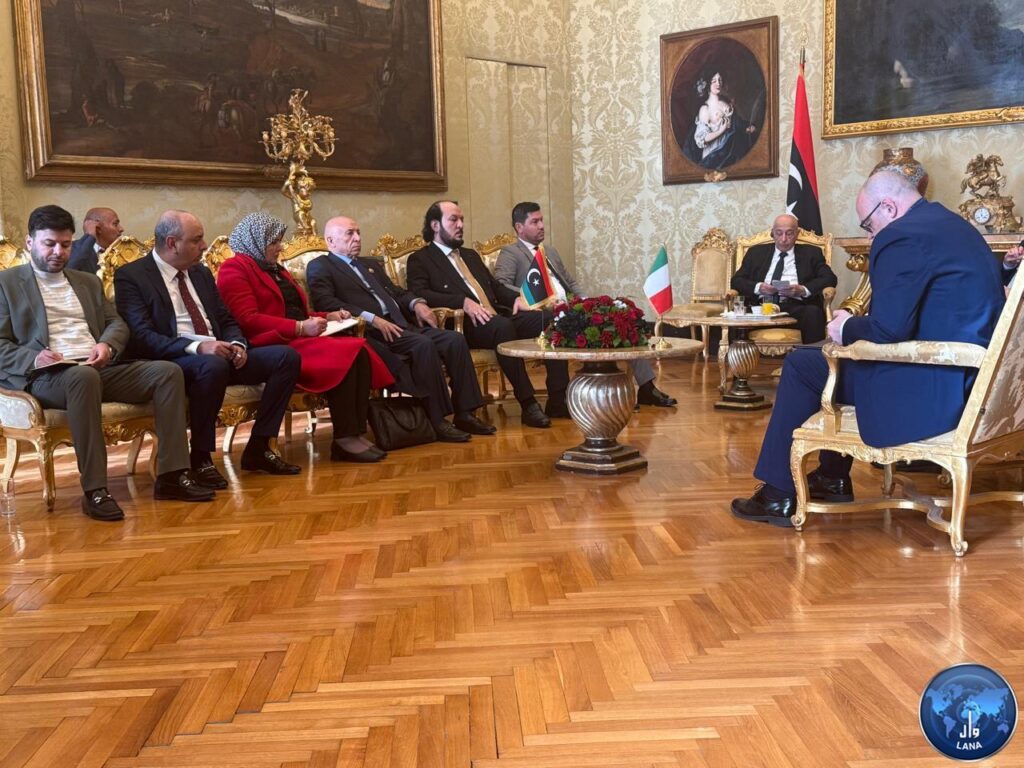Rome_ Libya has called on Italy to reactivate the Treaty of Benghazi signed in August 2008 and has since been known as the Treaty on Friendship, Partnership and Cooperation (TFPC). The call made by Mr. Agila Saleh, the speaker of the Libyan House of Representatives during a meeting on Thursday with the Italian speaker of parliament Mr. Lorenzo Fontana in Rome.
Saleh said that the Friendship Treaty marked a new phase in bilateral cooperation and that the political, economic and legislative role of the Italian Chamber of Deputies is vital in the reactivation of the treaty’s provisions, as quoted by the spokesman of the Libyan parliament Abdullah Blihaq on Friday in Rome.
“The meeting discussed ways and means to strengthen the historical relations between the two neighboring peoples based on their geographic, cultural and trade ties,” Blihaq said.
However, the lack of movement in the political process in Libya is not caused by the parliament but it is due to the force majeure raised by the High National Elections Commission (HNEC) and hence general presidential and parliamentary elections were put on hold, and this should not hinder such reactivation, he added.
Agila explained to Fontana Libya’s need for a new, unified government whose primary mission is to hold presidential and parliamentary elections. Reminding him that the HoR in consultation with the State Council issued the laws for electing the president and parliament and handed them over to the HNEC, which must have already held the elections.
Saleh also asked Fontana to take measures to pardon Libyan prisoners in Italy or send them back home to serve their sentences. Mr. Fontana agreed to invite the Libyan Attorney General to visit Rome and hold consultations with Italian authorities in this regard.
Both men reviewed the issue of illegal immigration and Saleh stressed that the root cause of the influx of illegal immigrants is hunger, poverty, destitution, internal conflicts political instability in the countries of origin.
Saleh said he instructed relevant authorities in Libya to cooperate with the Italian authorities to combat illegal immigration. While reiterating that the solution lies in creating work opportunities and development in their own countries, noting that Libya was not a source of immigration, but rather a transit country.
Mr. Fontana, meanwhile, welcomed the visit to Rome by Agila and the accompanying parliamentarian delegation, Blihaq said. Fontana said the visit was a great opportunity to hear from Saleh about the latest developments in Libya.
On 27 November, acting GNU-Minister of Oil and Gas, Khalifa Abdul Sadiq, discussed with the Italian Minister of Energy, Gilberto Pichetto Fratin, ways of strengthening cooperation in the areas of energy and renewable energies, according to LANA. Both agreed that it important to encourage Italian companies to invest in oil services and the renewable energy sector in Libya.
On 30 August 2008, PM of Italy Silvio Berlusconi and Muammar Gaddafi signed the Treaty on Friendship, Partnership and Cooperation between Italy and Libya in Benghazi. It is composed of three parts:
General principles; closing with the past and ending the disputes; and partnership. The first part begins with an official condemnation of Italy’s colonization of Libya. The second part, closing with the past, contains the reparation payment of $5 billion to be paid in annual installments of $250 million over a 20-year period. The third, most important part of the Treaty deals with partnership. While the countries planned to cooperate in the areas of culture, economy, science, non-proliferation and more, the foremost area of cooperation pertains to immigration.
